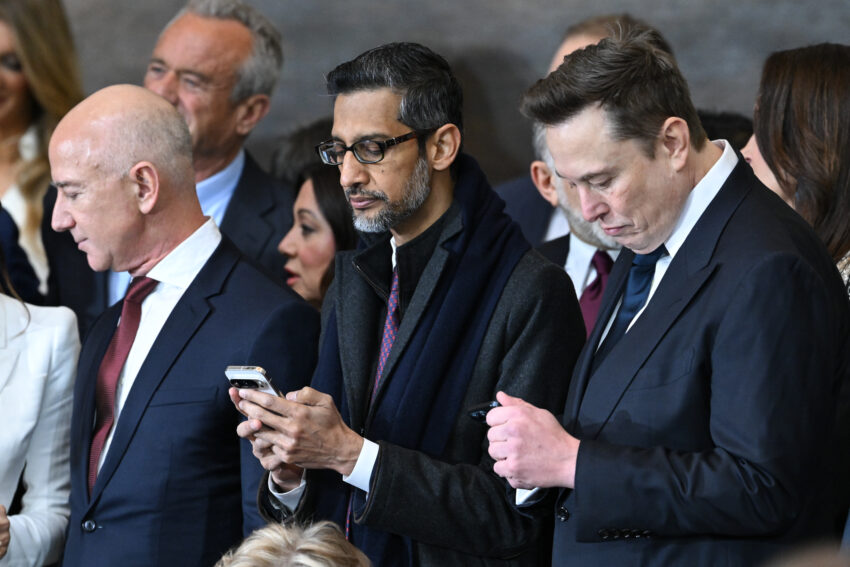
senate democrats want to know was youtube A group of Senate Democrats is raising concerns about the implications of YouTube’s recent settlement with former President Donald Trump, questioning whether it constitutes a form of bribery.
senate democrats want to know was youtube
Background on the Settlement
In 2021, Donald Trump filed a lawsuit against YouTube after being suspended from the platform for violating its policies. The lawsuit was part of a broader narrative surrounding Trump’s contentious relationship with social media platforms, which he often accused of bias against conservative voices. The recent settlement, amounting to $24.5 million, has sparked scrutiny from lawmakers, particularly given the context of ongoing antitrust investigations into Google, YouTube’s parent company.
The settlement has raised eyebrows for several reasons. First, the legal basis for Trump’s lawsuit was considered weak; courts have consistently upheld the right of social media companies to ban users who violate their terms of service. Secondly, the timing and nature of the settlement have led to questions about whether it was a strategic move by Google to curry favor with the Trump administration, especially as the company faces multiple antitrust lawsuits that could significantly impact its business operations.
Senators’ Concerns
A letter addressed to Google CEO Sundar Pichai and YouTube CEO Neal Mohan was signed by five Democratic Senators: Elizabeth Warren (D-MA), Ron Wyden (D-OR), Bernie Sanders (I-VT), Richard Blumenthal (D-CT), and Jeff Merkley (D-OR). In this letter, the senators expressed their concerns about the potential implications of the settlement, particularly regarding its influence on ongoing antitrust investigations against Google.
Questions About Favorable Treatment
The senators are particularly interested in understanding whether the settlement was part of a broader strategy to secure leniency from the Trump administration in ongoing antitrust lawsuits. They warned that if Google secured favorable treatment in exchange for the settlement, it could constitute an illegal bribe under federal law. The letter specifically cites the federal anti-bribery statute and California’s Unfair Competition Law, emphasizing the seriousness of their concerns.
The senators wrote, “The public deserves to know whether YouTube’s settlement will influence the Trump Justice Department’s decision regarding whether to appeal and seek the stricter remedies DOJ had originally sought against Google.” This statement underscores the potential ramifications of the settlement, not just for Google but for the broader regulatory landscape surrounding Big Tech.
Antitrust Legal Landscape
Google is currently embroiled in multiple antitrust lawsuits, including a significant case concerning its monopoly in the ad tech sector. The Department of Justice (DOJ) has argued for a dramatic breakup of Google’s advertising business, which could fundamentally alter the company’s operations. However, the government has the option to settle the case with less severe remedies, which raises questions about the motivations behind YouTube’s settlement with Trump.
In addition to the ad tech case, Google is also facing scrutiny in a search antitrust lawsuit. A judge has proposed remedies that are less severe than those initially sought by the Biden administration. The Trump administration’s involvement in deciding how aggressively to pursue an appeal adds another layer of complexity to the situation.
Implications of the Settlement
The implications of YouTube’s settlement extend beyond the immediate financial payout. If the settlement is perceived as a means to gain favorable treatment from the Trump administration, it could set a troubling precedent for how corporations interact with government entities. The senators’ letter raises the alarm that such actions could undermine public trust in both the tech industry and the government.
Moreover, the vast majority of the settlement amount—$22 million—was earmarked for the construction of a new White House ballroom. This detail has not gone unnoticed, as it raises questions about the motivations behind the settlement and whether it was designed to benefit Trump directly. Reports indicate that Trump is scheduled to hold a fundraising dinner for the ballroom shortly after the settlement was announced, further complicating the narrative.
Previous Settlements and Broader Context
YouTube is not the only tech company that has settled lawsuits with Trump. In the past, several other companies have made similar payments to avoid potential legal repercussions. For instance, Paramount reportedly paid $16 million as part of a merger approval process, while Meta and X have also settled lawsuits for amounts ranging from $10 million to $25 million. These settlements have drawn criticism from lawmakers, including Senator Warren, who previously stated that the Meta settlement “looks like a bribe.”
This pattern of settlements raises broader questions about the relationship between large corporations and political figures. Critics argue that such settlements can create an environment where companies feel pressured to pay for favorable treatment, undermining the integrity of both the business and political systems.
Responses from Google and YouTube
In response to the senators’ concerns, Google and YouTube have maintained that there were no discussions linking the settlement to any official actions or pending matters involving the company. They emphasized that their decision to settle was based on legal considerations rather than any attempt to influence government actions. However, the senators are pushing for further transparency to determine whether this assertion holds true.
The senators’ previous correspondence with Google and YouTube in August, prior to the settlement announcement, warned the companies against engaging in practices that could be perceived as paying for favorable treatment. Their ongoing inquiries reflect a commitment to holding tech companies accountable for their actions, particularly in light of the increasing scrutiny they face from regulators.
Public Sentiment and Stakeholder Reactions
The public’s reaction to the settlement has been mixed, with many expressing skepticism about the motivations behind it. Critics argue that the settlement could be seen as a way for Google to sidestep more severe regulatory consequences, while supporters may view it as a necessary step to resolve a contentious legal battle.
Stakeholders in the tech industry are also closely monitoring the situation, as it could have implications for how companies approach legal disputes with government entities in the future. The potential for increased regulatory scrutiny and public backlash may lead companies to reconsider their strategies when dealing with controversial figures or administrations.
Conclusion
The ongoing scrutiny of YouTube’s settlement with Donald Trump highlights the complex interplay between large tech companies and government entities. As lawmakers continue to investigate the implications of this settlement, the broader conversation about corporate influence in politics is likely to intensify. The outcome of this inquiry could have lasting repercussions for both the tech industry and the regulatory landscape, as stakeholders grapple with the ethical considerations surrounding such settlements.
Source: Original report
Was this helpful?
Last Modified: October 15, 2025 at 11:39 pm
1 views















